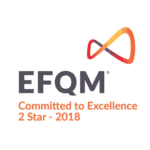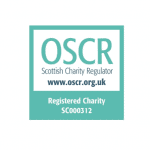Falkirk’s Third Sector Employability Forum gives third sector groups and organisations in Falkirk District the opportunity to come together and explore, plan and develop how they contribute to the employability agenda in Falkirk, and national employability policy.
Terms of Reference
Members of the forum are working on a new Terms of Reference, which will be available soon.
- Previous Terms of Reference: Economic Resilience & Employment Forum Terms of Reference (2018)
Dates of Future Meetings
All meetings will be held via Microsoft Teams, 10am – 11am, unless stated otherwise.
- Wednesday 18 February 2026
- Wednesday 1 April 2026
- Wednesday 10 June 2026
- Wednesday 19 August 2026
- Wednesday 25 November 2026 (in-person)
Minutes and Agendas of Previous Meetings
- October 2025 Third Sector Employability Event: Wednesday 5 November, 2pm – 4pm, Arnotdale House, Dollar Park, Camelon Road, Falkirk, FK1 5SQ
- Minutes (pending approval)
- Background: “We will welcome speaker Stewart Ritchie from Forth Valley College who will share more information about the opportunities available to offer third sector placements for students studying “Working with Communities” courses, before facilitating discussion about local third sector employability priorities and mapping activity to support the development of Falkirk’s new Local Employability Plan. Participants will also have the change to share a brief summary of their own services and activities and to network with others.”
- Minutes of Wednesday 18 June 2025
- Minutes of Wednesday 2 April 2025
- Minutes of Wednesday 5 February 2025
- Minutes of Wednesday 12 December 2024
- Minutes of Wednesday 23 October 2024; Presentations:
- Tuesday 27 August: Falkirk District’s Third Sector Employability Summit; Presentations:
- Minutes of Wednesday 29 May 2024
- Minutes of Wednesday 24 January 2024
- Minutes of Wednesday 27 March 2024; DYW Presentation
- Minutes of Wednesday 29 November 2023; Agenda 29.11.2023
- Minutes of Wednesday 18 October 2023; Agenda 18.10.2023
- Thursday 24 August 2023: Falkirk’s Third Sector Employability Summit
- Minutes of Wednesday 19 July 2023; Agenda 19.7.2023
- Minutes of Wednesday 31 May 2023; Agenda 31.5.2023
- Minutes of Wednesday 19 April 2023; Agenda 19.4.2023; Presentation: Community Wealth Building Consultation: Falkirk Third Sector Response
- Wednesday 25 January 2023 (meeting postponed)
- Minutes of Wednesday 19 October 2022 (available on request)
- Minutes of Wednesday 9 February 2022 (available on request); Agenda 9.2.2022
- Minutes of Tuesday 30 November 2021 (available on request); Agenda 30.11.2021
- Minutes of Monday 6 October 2021; Agenda 26.10.2021
- Minutes of Monday 20 September 2021; Agenda 20.09.2021
- Minutes of Wednesday 14 July 2021
- Minutes of Wednesday 12 May 2021
- Minutes of Wednesday 17 March 2021; Agenda 17.02.2021
- Minutes of Wednesday 17 February 2021; Agenda 17.02.2021; Presentations:
- Minutes of Wednesday 9 December 2020; Agenda 09.12.2020
- Thursday 21 May 2020 (meeting cancelled due to COVID-19)
- Minutes of Thursday 20 February 2020; Agenda 20.002.2020; Presentation: Social Security Scotland
Useful Information and Documents
Fair Work First is Scottish Government’s flagship policy for driving high quality and fair work across the labour market in Scotland. This is through applying fair work criteria to grants, other funding and contracts being awarded by and across the public and third sectors, where it is relevant to do so.
Through this approach, Scottish Government is asking employers to adopt fair working practices, specifically:
- appropriate channels for effective voice, such as trade union recognition
- investment in workforce development
- no inappropriate use of zero hours contracts
- action to tackle the gender pay gap and create a more diverse and inclusive workplace
- payment of the real Living Wage
- offering flexible and family friendly working practices for all workers from day one of employment
- opposing the use of fire and rehire practices
Fair Work Dimensions
Scottish Government’s Fair Work Convention sets out the 5 dimensions of their Fair Work policy:
- Opportunities
- Security
- Fulfilment
- Respect
- Effective Voice
Further information is available at the following links:
The real Living Wage is an independently calculated rate based on the cost of living and is paid voluntarily by employers. The rate is calculated annually by The Resolution Foundation on an analysis of the wage that employees need to earn in order to afford the basket of goods required for a decent standard of living. This basket of goods includes housing, childcare, transport and heating costs.
The real Living Wage is different to the UK government’s National Living Wage which is not calculated according to what employees need to live on.
The Living Wage movement began at a meeting in East London in 2001, when Citizens UK brought together faith organisations, schools, trade unions and other local institutions to talk about the issues affecting their communities. One issue came up time and time again – low pay.
In 2007, the Poverty Alliance established the Scottish Living Wage Campaign, a coalition of trade unions, anti-poverty campaigners, voluntary organisations and faith-based groups with the aim of increasing support for the Living Wage in Scotland.
The first UK Living Wage rate was launched by the Living Wage Foundation in 2011 and the accreditation scheme was established to celebrate employers choosing to go further than the government minimum.
Living Wage Scotland was launched in April 2014 with the aim of increasing the number of employers in Scotland who are recognised for paying their staff the real Living Wage. Established by The Poverty Alliance, Living Wage Scotland works in partnership with the Living Wage Foundation and is funded by the Scottish Government.
Since then, local authorities, health boards and companies across all sectors and industries have commit to paying their staff a decent wage.
For further information, including how to become a real Living Wage Employer, please visit the Living Wage Scotland website.
SDS is the national skills body supporting the people and businesses of Scotland to develop and apply their skills. They are committed to building a Scotland which champions fair work practices and a diverse workforce.
Working with local and national partners, they strive to ensure employers have the right skills, at the right time, in high performing, fair and equal workplaces, and that every individual has the skills and confidence to get a job and progress in the workplace, achieving their full potential. Support for employers includes tailored skills advice and funding for workforce development.
Their Falkirk page highlights key data relevant to the area, including the area’s Modern Apprenticeship statistics, and the number of young people (aged 16 – 19 years old) in education, employment or training, and personal development.
For further information, please visit the SDS Falkirk page.
The current 10 year Economic Strategy for Falkirk focuses on 3 key areas:
- Growth
- Investment
- Inclusion
The strategy is designed as a dynamic document, to reflect ongoing changes to Falkirk District’s economy, and was created through collaborative effort and consultation with partners and local stakeholders.
Acting as a roadmap, the strategy aims to help measure progress made, and provide tools to help achieve the growth in businesses, jobs and prosperity required to meet the aspirations of the local community.
For further information, including the strategy in full, please visit the archived Falkirk Council website.
Falkirk Community Planning Partnership (CPP) is the collection of public, private, third and community sector organisations providing local services in Falkirk which serve the local community. It is required by the Community Empowerment (Scotland) Act 2015 to publish a Local Outcomes Improvement Plan (LOIP), which identifies the greatest inequalities for Falkirk’s residents, and how services which make up the CPP, plan to tackle them.
The Falkirk Plan (2021 – 2030) was approved and published in October 2021, after a year-long development process which included a review of local data, extensive engagement with local residents, and a review of local policy and projects that impact the issues raised by local people. The Plan is available to view or download as a pdf document (linked for your convenience).
Each of the third sector forums and networks facilitated by CVS Falkirk allows the third sector’s voices, issues, concerns and views to be raised within Community Planning in Falkirk District, and the priorities identified in the Falkirk Plan.
For further information, please visit the new, dedicated Falkirk CPP website.
Published in 2016, the Fairer Scotland was built on the public debates about independence in 2013 and 2014. In those discussions, social justice was often at the very centre of people’s concerns, with Yes voters and No voters discussing – openly and passionately – the possibilities and challenges for a more socially just and open society.
Fair work was a strong focus in these Fairer Scotland conversations. A decent standard of living – having a job which treated people fairly and paid a living wage – was a key theme.
Support for flexible jobs and flexible working was also seen as vital, as was an end to discrimination (for example, on the grounds of disability or pregnancy and maternity), and active support for people who need help to get back into the labour market, or to boost their work prospects and progress.
To view the action plan in full (along with associated information and documents), please visit the Scottish Government website.
Contact
If there are any issues, speakers or areas of interest you would like added to the agenda of future meetings, or to be added to the Employability Forum mailing list, please contact Laura Jamieson by email: laura@cvsfalkirk.org.uk
Forum representatives:
- Sandra Lyon, The Conservation Volunteers: s.lyon@tcv.org.uk
- Lynda Ross-Hale, Cyrenians: lyndarosshale@cyrenians.scot











